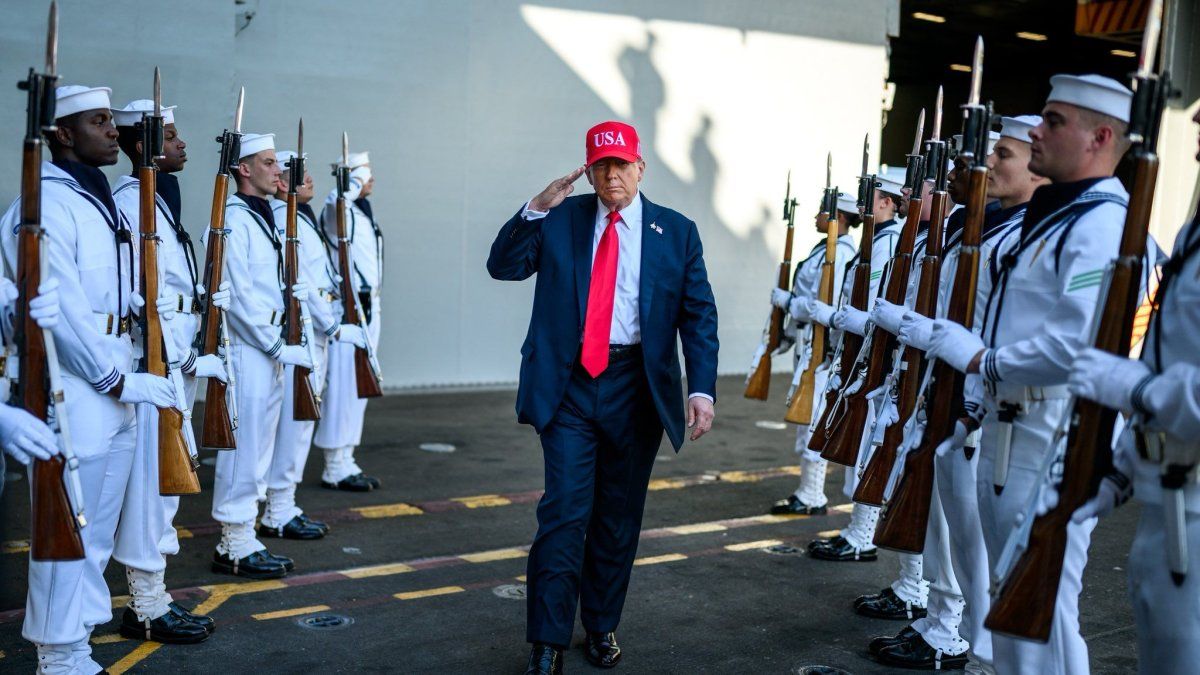The future of the Bundeswehr missions in West Africa must now be decided quickly. A mountain of problems has accumulated. The defense minister informs herself in the country.
Now West Africa too: in the shadow of the Ukraine war, Defense Minister Christine Lambrecht landed in Mali on Friday to prepare the urgently pending decision on the future of German military operations there.
Around 1,100 men and women from Germany are deployed as blue helmets for the UN mission Minusma, and around 320 other soldiers are part of the EU training mission EUTM, which is the focus of the first day of the trip. The current mandate for this German mission is valid until May 31. After several military coups in Mali and the use of Russian mercenaries, Lambrecht “cannot imagine” a sequel, as she has already said.
Reports of a massacre of civilians by Malian soldiers with the participation of Russian mercenaries from the Wagner company only raise doubts. According to the Malian army, 203 people were killed and 51 arrested in a large-scale operation against terrorists. Reports on social media that many civilians were among the dead were described as “slanderous speculation”.
What are the consequences of a possible end to the missions?
The EU partner France is retreating in Mali; the Russians are advancing. However, Germany must weigh up the consequences of a possible end to the missions for the unstable Sahel region. Other powers like China, Turkey and especially Russia could step into this vacuum. They are already vying for influence in Mali with huge investments, arms sales and defense cooperation. With its 55 countries and around 1.3 billion inhabitants, Africa is also of great strategic importance for the EU.
The security situation in the entire Sahel region, which stretches south of the Sahara from the Atlantic to the Red Sea, is precarious. A number of armed groups are active there. Some have pledged allegiance to the terrorist groups Islamic State (IS) or al-Qaeda. Mali is at the center of the fight against terrorism in West Africa. The instability of the region also has a direct impact on migration towards Europe.
Mali has seen three military coups since 2012. Since the last coup in May, the country has been led by a transitional military government. The former colonial power France has been active in the region with thousands of military in the fight against terrorism.
UN mission likely to continue
If the decision is made in May, the UN mission Minusma is likely to continue, while the EU training mission EUTM could be terminated or put on hold. One reason: the soldiers trained by Germany and other EU partners go into battle alongside Russian military personnel. At the same time, calls to the military leadership to initiate a speedy return to democracy have gone unheeded. Germany considers elections in just five years, as announced by the junta, to be unacceptable.
But the more the West pushes for a return to democracy, the more it is playing into Russia’s hands, warn analysts at the Center for Strategic and International Studies (CSIS) in Washington DC. The military junta around interim President Assimi Goïta has close ties to Russia: many of the putschists received military training there – some ministers of the interim government studied in Moscow.
According to the CSIS, mercenaries from the Wagner Group are in the process of establishing themselves firmly in Mali. According to reports, Wagner trains local armed forces in the crisis state and provides high-ranking Malian officials with security services. The mercenary group is known for targeting politically unstable but resource-rich countries – including Libya, Sudan, the Central African Republic, Madagascar and Mozambique, according to the CSIS.
According to the CSIS, around 400 mercenaries are already stationed in Mali – above all in the capital Bamako and in the desert city of Timbuktu in the center of the country, which was recently abandoned by the French. According to reports in the French media, the mercenaries arrived earlier this year from Libya, where they had previously been deployed. However, the exact scope and nature of the Wagner Group’s activities in Mali remain unclear.
According to the peace research institute SIPRI, in recent years Russia has blossomed into the largest arms exporter to Africa and supplies Mali with AK-47 assault rifles, attack helicopters and tanks. It will be paid for in financial concessions and mining concessions that will allow Russia to expand its influence on the continent, SIPRI said.
However, the war in Ukraine could also change Russia’s Mali strategy. It is quite possible that Wagner will have to shift his resources to Eastern Europe in the short term, says Raphael Parens of the Foreign Policy Research Institute. Then the Russian mission in Mali could end much faster than the Malian military government had hoped and Germany feared.
Source: Stern
David William is a talented author who has made a name for himself in the world of writing. He is a professional author who writes on a wide range of topics, from general interest to opinion news. David is currently working as a writer at 24 hours worlds where he brings his unique perspective and in-depth research to his articles, making them both informative and engaging.




